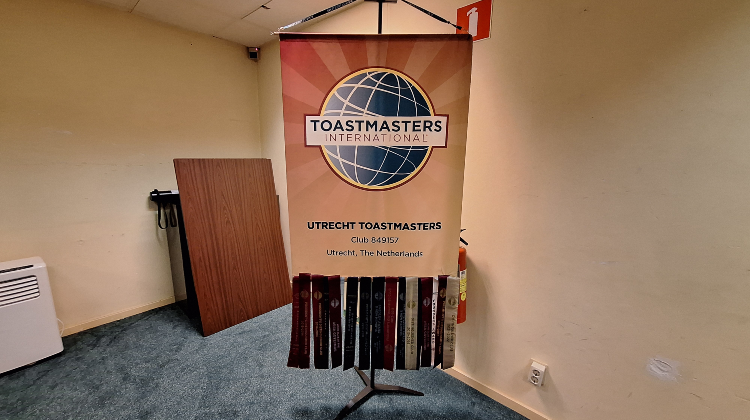What happens at a Toastmasters meeting
Organisation helps students to improve public speaking skills

Toastmasters is an international organisation founded in 1924. Every two weeks, a themed meeting is organised at the restaurant Florin for twenty to thirty people. These evenings are always organised by one of the members. Different speaking pathways can be learnt at these events, such as humour or persuasion, allowing members to broaden their public speaking abilities.
“Finding humour in everyday life” was the theme of the meeting held on November 22, organised by Bianca, the “toastmaster”. She believes that “we all face difficulties in our daily life, but the more problems you have, the more jokes you can make about it”.
Bianca has been a member of Toastmasters Utrecht for three years and affirms that her public speaking abilities have improved a lot since she first started. “You are going to have crappy days”, she admits, “but keep showing up and everything will be fine. The group is nice and friendly”.
Nia, who studied in Utrecht, discovered Toastmasters thanks to her thesis supervisor. “I’ve always liked public speaking since I was ten years old. But my teachers never gave me any useful feedback on how to refine my speaking abilities, until one of my teachers suggested I give Toastmasters a try”. She notes that being part of Toastmasters looks good on one’s CV and improves one’s general knowledge and social life.
Toastmasters is quite a popular association, but not very visible. They only publish their events online. It can be found through Google and LinkedIn when writing “public speaking in my area”. The first three trial meetings are free, while a membership costs 105 euros for six months.
Each meeting lasts about two hours and concludes with drinks. The Toastmaster of the evening introduces the theme and presents a “word of the day”, which guests can try to use during their impromptu speeches. Guests receive an improvised prompt and need to speak about it for at least two minutes, with the help of a timer. After everyone has spoken up, evaluation is given by the Grammarian and the “Ah-Counter”, who tracks filler words such as “uhm” and “huh” when speaking. Attendees can then vote for the best speaker, best evaluator and best impromptu speaker.